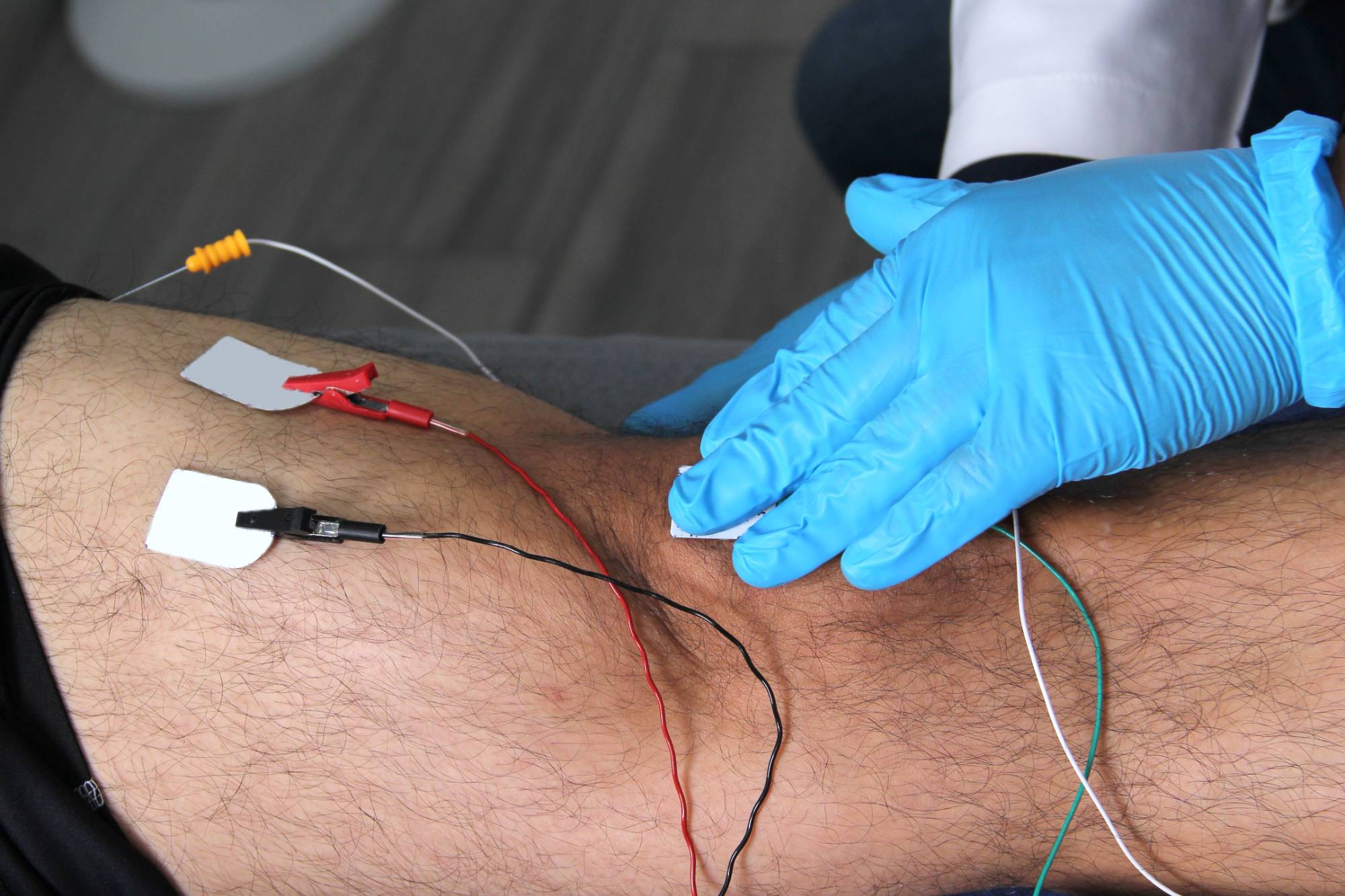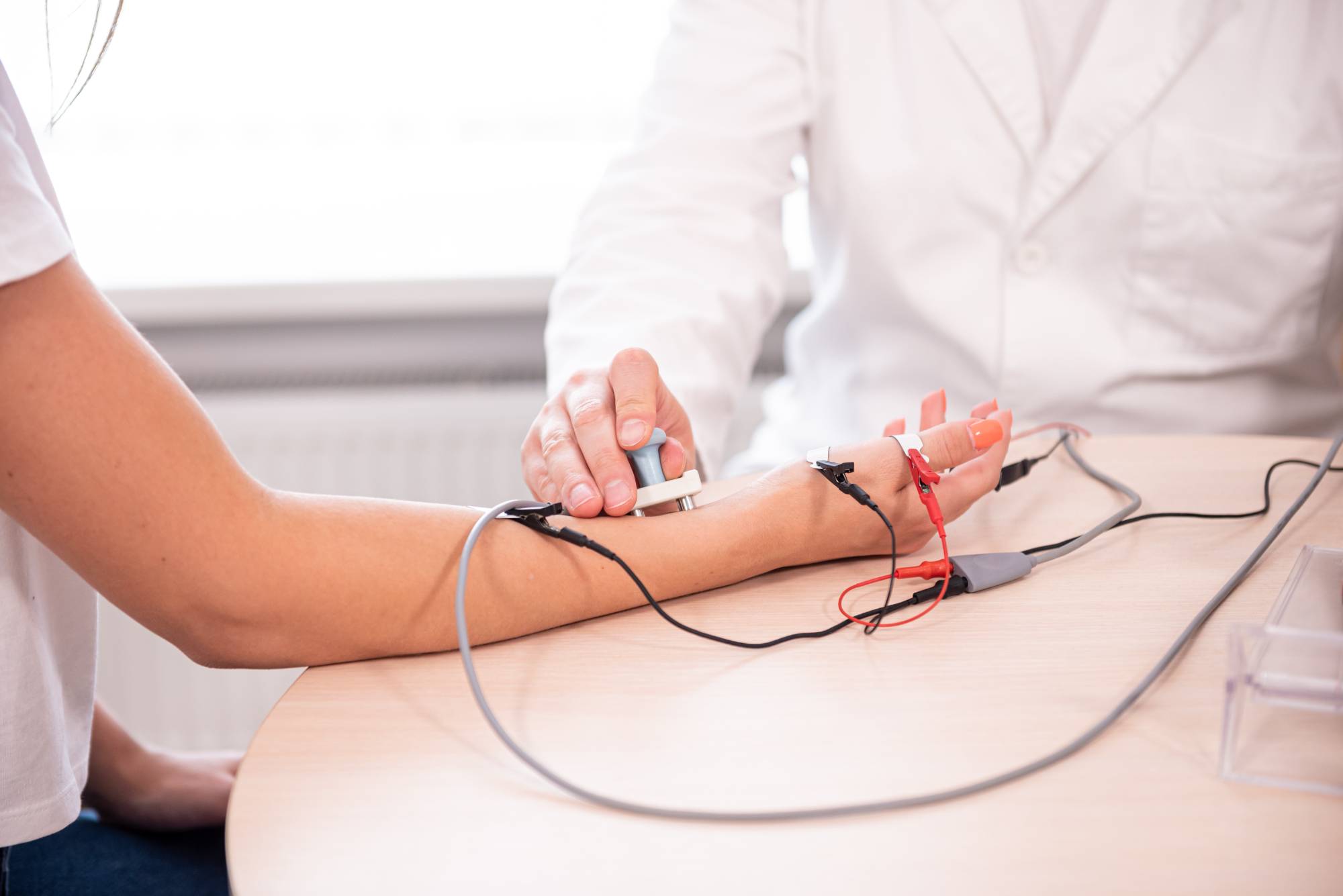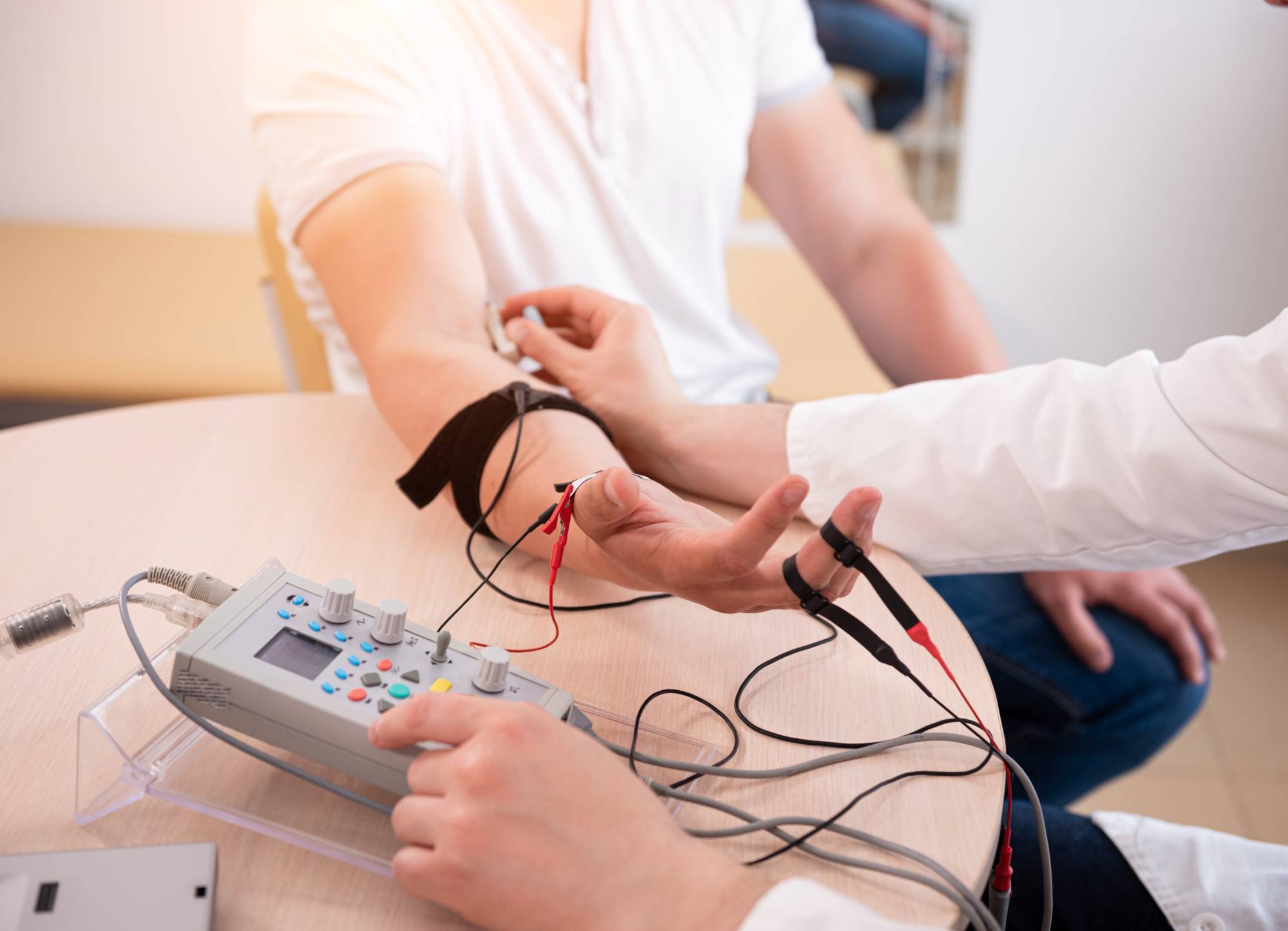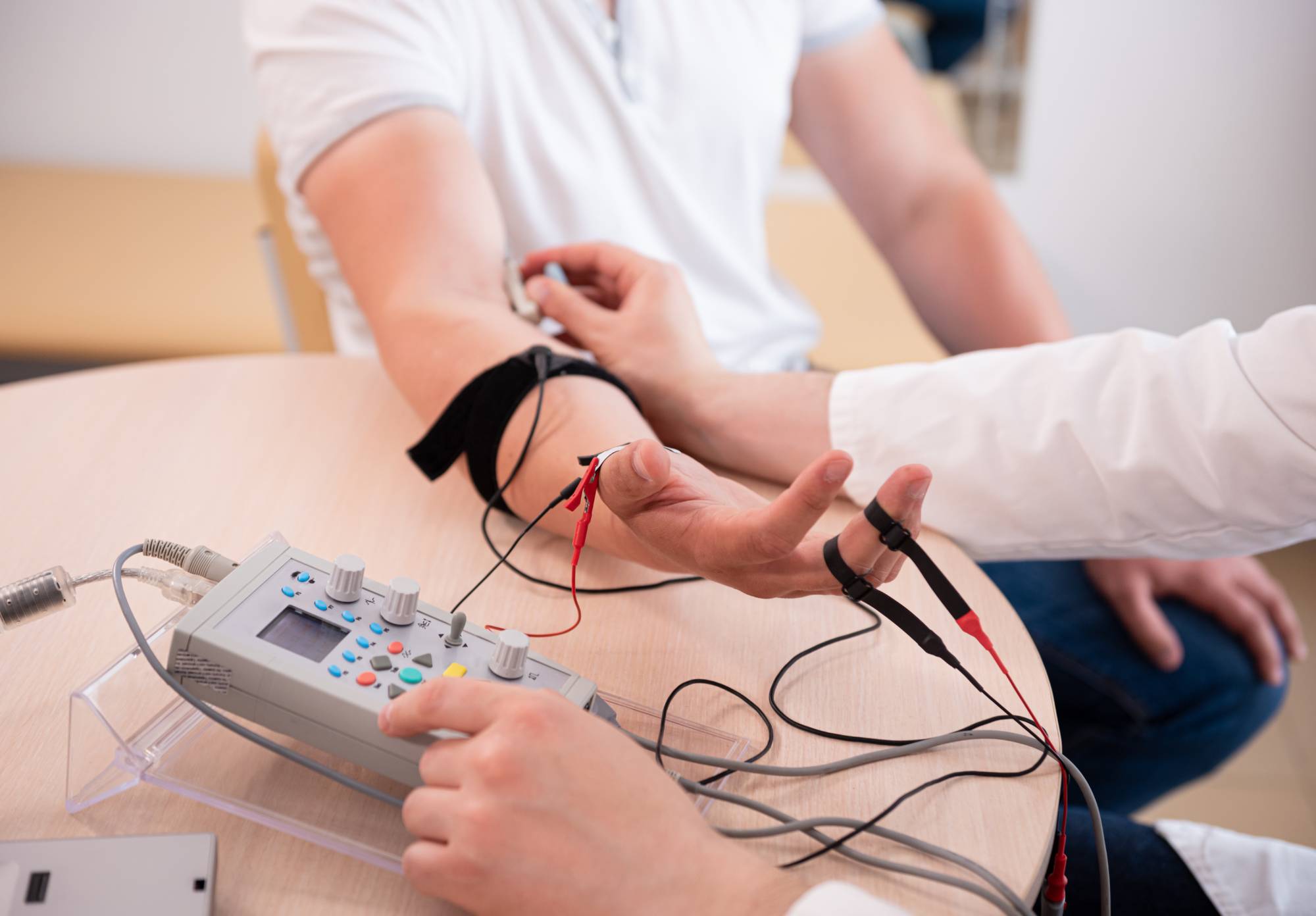Advanced electromyography testing that pinpoints exactly what’s causing your symptoms, so you can finally move forward with the right treatment.

Reviews

You’ve been dealing with numbness, tingling, or muscle weakness long enough. The uncertainty is almost worse than the symptoms themselves. EMG testing gives you concrete answers about what’s happening with your nerves and muscles.
Our electromyography and nerve conduction studies measure exactly how your nerves are functioning. Within minutes, we can tell if you’re dealing with carpal tunnel syndrome, sciatica, peripheral neuropathy, or another nerve-related condition. No more guessing. No more wondering if it’s all in your head.
When you know what’s wrong, you can address it properly. That’s the difference between months of ineffective treatment and getting your life back on track.
We’ve been serving the Long Island community with comprehensive spine and nerve care for years. Our board-certified specialists understand that accurate diagnosis is the foundation of effective treatment.
We’ve performed thousands of EMG tests and nerve conduction studies. Our team knows how to interpret the subtle patterns that reveal exactly what’s affecting your nerve function. More importantly, we explain your results in plain English, so you understand what we found and what it means for your recovery.
You’re not just getting a test here. You’re getting answers from specialists who’ve seen your condition before and know how to help.

The EMG test itself takes about 30-60 minutes, depending on which nerves and muscles we need to evaluate. We start with nerve conduction studies, where small electrical pulses measure how fast signals travel through your nerves. You’ll feel a brief tingling sensation, but nothing painful.
Next comes the electromyography portion, where a thin needle electrode measures electrical activity in your muscles. The needle is much smaller than what’s used for blood draws. We test different muscles to see how they respond to nerve signals.
Throughout the process, we explain what we’re seeing on the monitor. By the end of your appointment, you’ll have preliminary results and a clear understanding of what’s happening with your nerve function. We’ll discuss next steps and treatment options based on what we find.

Ready to get started?
Your EMG testing includes both nerve conduction velocity studies and electromyography to give us a complete picture of your nerve and muscle function. We test multiple nerve pathways to identify exactly where problems are occurring and how severe they are.
Our advanced equipment can detect even subtle nerve damage that might be missed with less sophisticated testing. We evaluate motor nerves that control muscle movement, sensory nerves that carry feeling, and the muscles themselves to see how they respond to nerve signals.
You’ll receive a detailed report explaining our findings, along with recommendations for treatment. If we identify a condition that requires immediate attention, we can coordinate care with other specialists or begin treatment planning right away. Most insurance plans cover EMG testing when medically necessary.

New York:
Florida:
Support